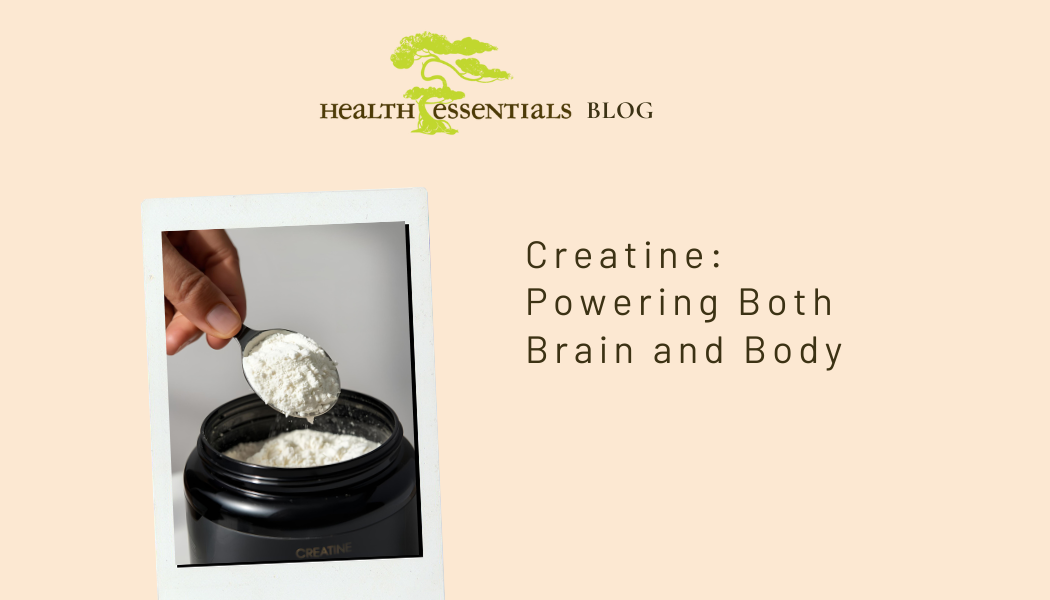Natural Approach to Anxiety by Stephanie Bayliss, N.D.
Anxiety disorders are the most common mental health illness affecting adults in Canada. At least one in four Canadians will experience an anxiety disorder in their life. Many of these people will experience social and occupational impairment due to the debilitating nature of the anxiety. 1 The treatment of choice for anxiety is typically pharmacological therapy, and to a lesser extent, counseling.
It is important for individuals to feel empowered when choosing the right treatment plan, and to have collaborative care amongst their healthcare providers. It is of the utmost importance that your primary healthcare provider does a thorough work up of your anxiety prior to initiating any treatment. Anxiety is not just a mental illness; there are also many physical conditions that can manifest as anxiety. Examples of this are thyroid irregularities, which are becoming increasingly more common, as well as blood sugar disparities. For more information on thyroid testing and treatment, Aviva Romm, MD has written extensively on this topic.
Diet
Dietary changes that can make substantial changes to your mood include limiting sugar, gluten and GMO products. A world renowned integrative psychiatrist, Kelly Brogan, wrote an in-depth article outlining these changes and why they may be harmful.
Supplements
Apart from the conventional approach to treating anxiety with anti-anxiety medications, there are a multitude of nutritional options. The most safe and effective are vitamin D, magnesium, B vitamins and probiotics.
Vitamin D
Vitamin D deficiency is rampant amongst Canadians due to the limited amount of sunlight exposure we have. Testing for vitamin D is not included within MSP in BC due to the assumption that everyone should be supplementing, but it is still a helpful test to run to know how much supplementation you should take to replenish your stores. Speaking with your primary healthcare provider about specific dosing is recommended, but typically minimal dosing is 1000-2000 IU a day up to 10,000 IU a day. When choosing a vitamin D supplement, ensure it contains vitamin D3 (cholecalciferol), as this is the active form of vitamin D.
Magnesium
Magnesium supplementation can make dramatic changes in physical (e.g., muscle hypertonicity, constipation), as well as mental and emotional well being (e.g., insomnia and mood). Plasma magnesium levels have been demonstrated to be lower in patients with schizophrenia, depression, and mania as seen in bipolar disorder when compared to healthy controls. In this study, as patients achieved improvement in their symptoms, the plasma magnesium levels increased, suggesting that a magnesium deficiency contributes and potentially exacerbates symptoms consistent with these conditions. 1 Not all forms of magnesium are equivalent. When looking for a magnesium supplement be sure to choose magnesium bisglycinate if you are looking to improve absorption from the bowels and have a systemic effect.
B Vitamins
B vitamins are involved in the production of neurotransmitters, myelin, DNA and RNA. They are also important co-factors in the production of cortisol, our primary stress hormone. Vegetarians and vegans are at particular risk of running a deficiency of vitamin B12, given that animal protein is the predominant source of B12. A good example of potential consequences of B12 deficiency is a published case study of psychiatric symptoms manifesting as a B12 deficiency. 2 When looking for a B12 supplement, choose methylcobalamin, as cyanocobalamin is a synthetic form of B12, that is not well utilized by the body. Discuss with your primary healthcare provider if a B vitamin supplement is right for you.
Probiotics
We have all heard of the gut – brain relationship and the importance of our microbiome. Recent research clearly outlines how gut integrity influences mood. A striking example of this has been demonstrated in animal research. To elicit a depressed state, researchers administered LPS (lipopolysaccharide) from gram-negative bacteria, which causes inflammation of the gastrointestinal tract. The immune response that occurs as a result of this inflammation subsequently led to symptoms of depression. Using fluoxetine, a commonly prescribed antidepressant, the researchers were able to eliminate the neurobehavioural symptoms that had been induced by LPS after 3 weeks 3. We can therefore hypothesize that maintaining healthy flora within our gastrointestinal tract is fundamental to mental health. There are multiple strains of bacteria contained in some probiotics that have proven directly beneficial to mood, such as Lactobacillus rhamnosus in depression. 4 While some strains of Bifidobacterium can alleviate anxiety. 5 There are a surplus of probiotic options available on the market, so ensure the one you are choosing has sufficient amounts of colony forming units (CFU’s) for your condition, and requires refrigeration.
This information is provided as a general source of information only and should not be considered personal health advice. Please ensure you consult with a professional health care physician for your personal health concerns.
Stephanie Bayliss is a Naturopathic Physician practicing in Victoria BC at Acacia Health and is currently accepting new patients. Her practice has a focus on mental health, chronic disease and neurological conditions. For more information her website is www.drstephaniebayliss.com
References
- Kessler, R. C., McGonagle, K.A., Zhao, S. et al. (1994). Lifetime and 12 month prevalence of DSM-III-R psychiatric disorders in the United States: results from the National Comorbidity Survey. Archives of General Psychiatry, 51, 8-19.
- Berry, N., R. Sagar, and B. M. Tripathi. “Catatonia and other psychiatric symptoms with vitamin B12 deficiency.” Acta Psychiatrica Scandinavica108.2 (2003): 156-159.
- Kubera, M., Curzytek, K., Duda, W., Leskiewicz, M., Basta-Kaim, A., Budziszewska, B., … & Lason, W. (2013). A new animal model of (chronic) depression induced by repeated and intermittent lipopolysaccharide administration for 4 months. Brain, behavior, and immunity, 31, 96-104.
- Evrensel, Alper, and Mehmet Emin Ceylan. “The gut-brain axis: the missing link in depression.” Clinical Psychopharmacology and Neuroscience 13.3 (2015): 239.
- Neurogastroenterol Motil. 2014 Nov;26(11):1615-27.


